Blog
Ingenious Project test event - May 17th -19th M Shed Museum Bristol
Added 19th May 2012
This pilot event consisted of a range of 40 minute workshops in the M Shed learning studios and a market stall style environment running through the galleries to link exhibits to live engineers. Schools signed up for a 2.5 hour session or were visiting the museum and got involved. On the Saturday the public could access the stalls with the engineers and could book for a workshop on flight that ran four times throughout the day. The learning went both ways as most of the engineers were not trained presenters.
M Shed Museum is surrounded by Bristol's engineering heritage. Matt Tosh one of the Ingenious project volunteers engaged young people in this exciting stimulus. He linked machinery, vehicles and the dockland environment to principles of engineering and the range of related jobs.
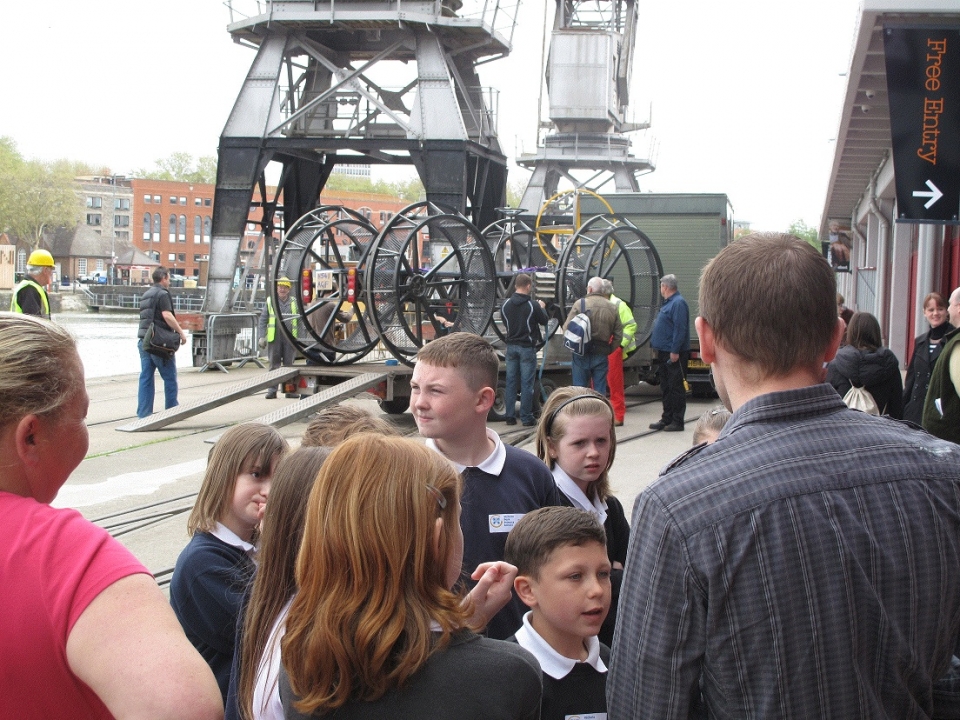
Part of Claverham's businesses is to make hydraulic systems for aircraft and helicopters. Phil Rowles, a Hydraulic engineer ran four workshops each day. He amazed participants with readily available materials to reveal how hydraulic systems work.
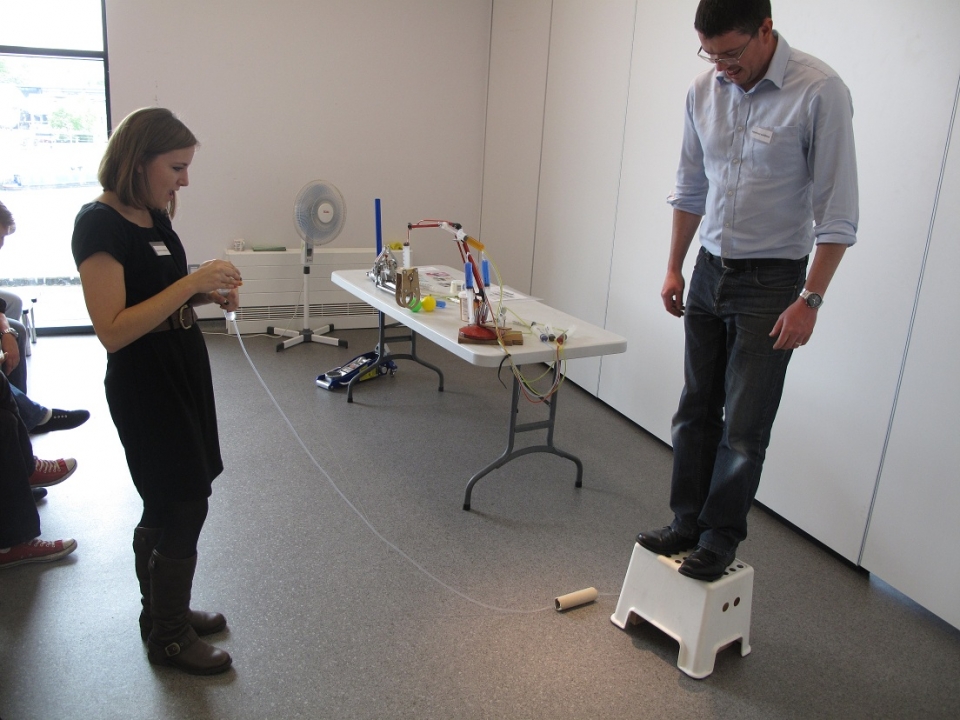
Getting young people to work as a team to simulate the computer that controls a hydraulic system
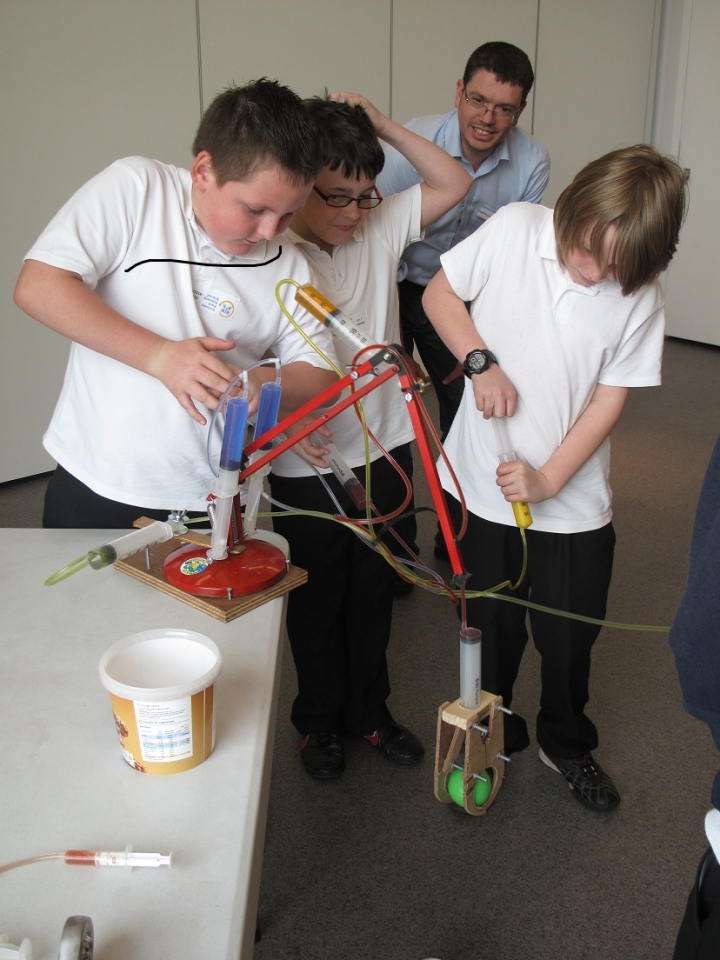
It works to engage all ages
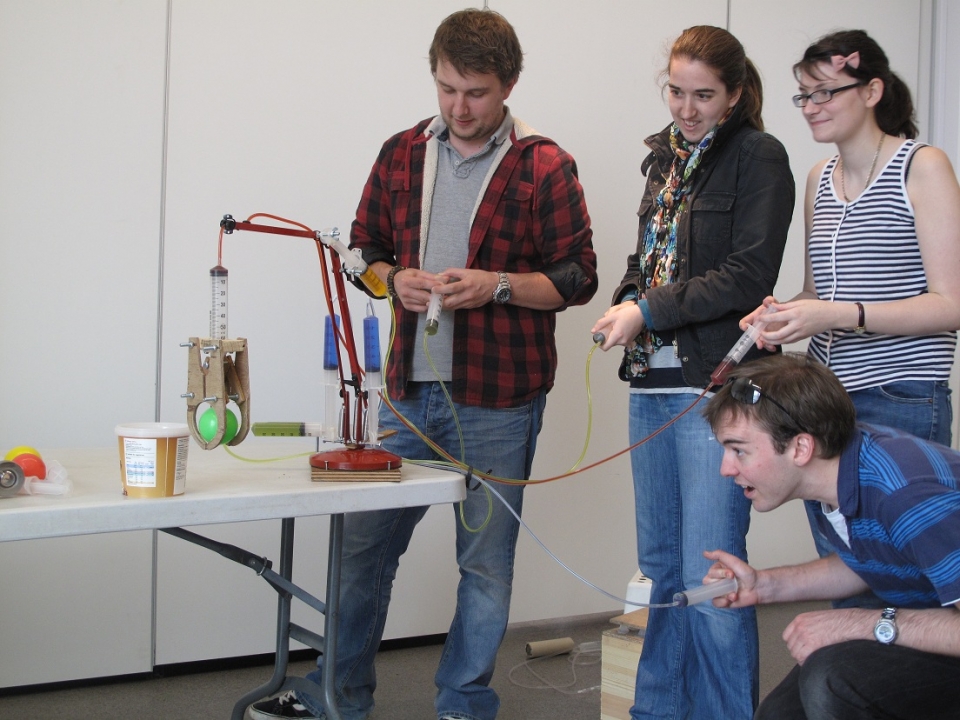
and families
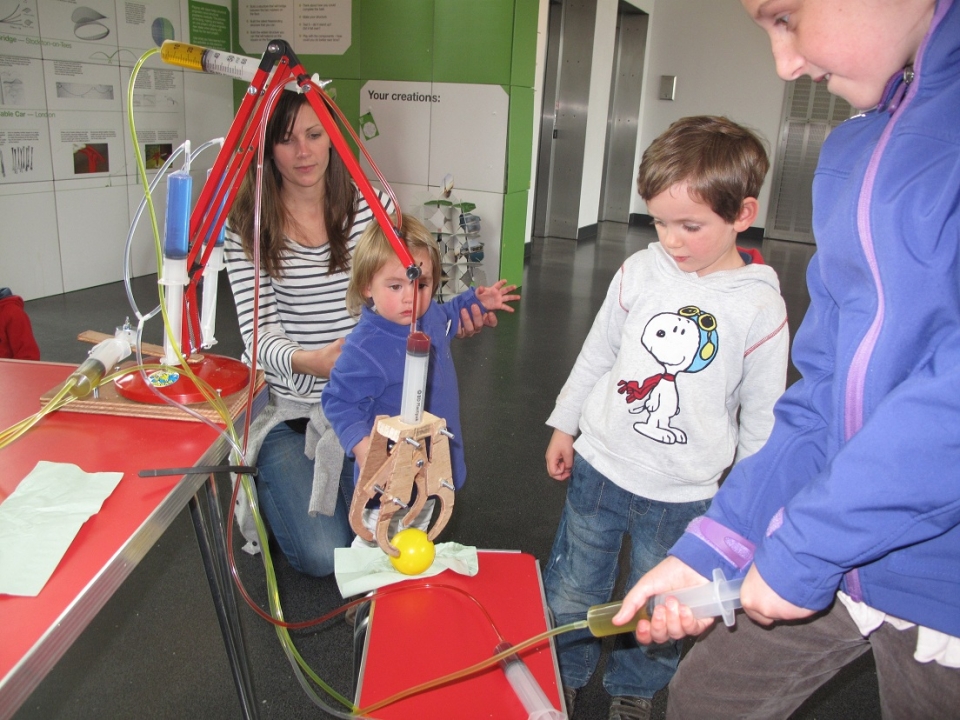
Bernard North works for Claverham as an engineer. He is also a member of the Society of Model Engineers which wants to engage young people in engineering. The Ingenious project provided the perfect test bed to see how they work best with schools and the public. Bernard used working models of steam engines and a full range of the materials to engage and explain the functions of a steam engine and the processes and materials needed to make one.
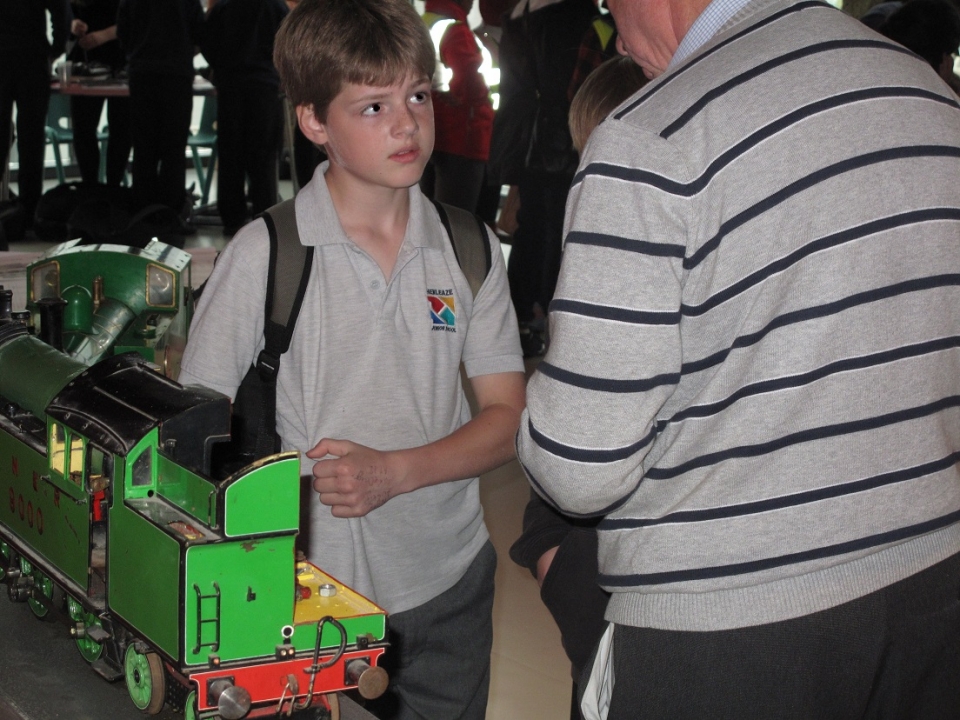
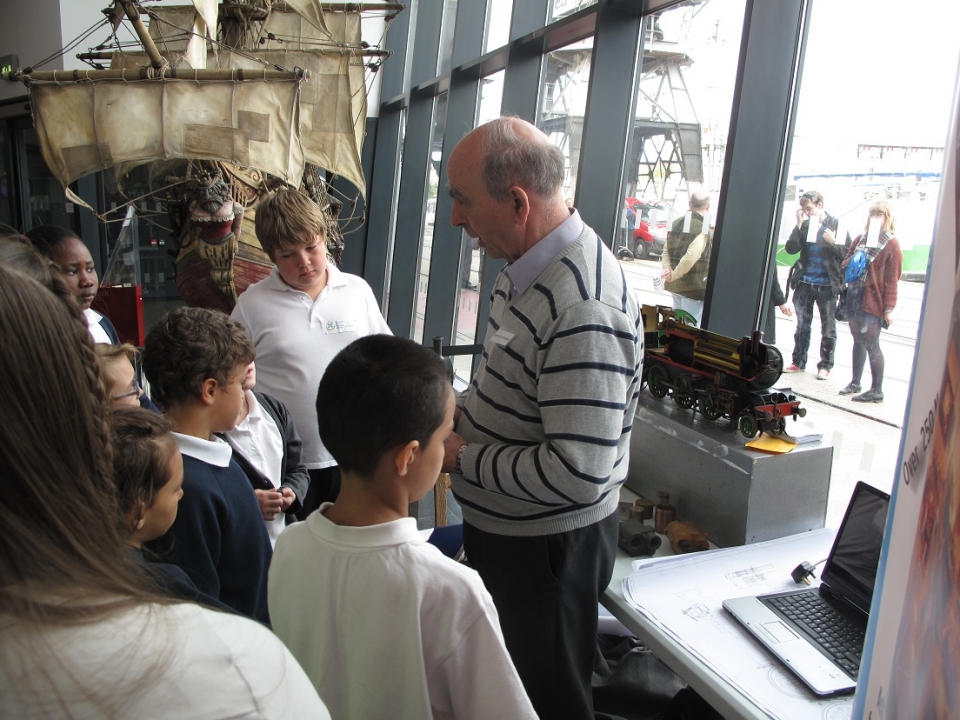
The project devised an Engineering-Jobs Top-Trumps card game. Engineers rewarded children with cards for asking questions or feeding back learning. This approach was used to encourage interaction around the key messages for very diverse exhibits and activities. Exhibitors and workshop leaders had sent in their ideas for the cards based on their actual jobs. These were combined to make 40 different engineering characters. Some of the cards were 'Ancestral Engineers' or 'Future Engineers' so children found themselves playing Top Trumps with characters like Blacksmith or Tele-Portation Engineer. It appeared to be successful with children returning on Saturday to try and complete their set of cards. There is a need for some reworking of the content. It was most successful when an engineer felt the cards they distributed represented them and people they interacted with in their job.
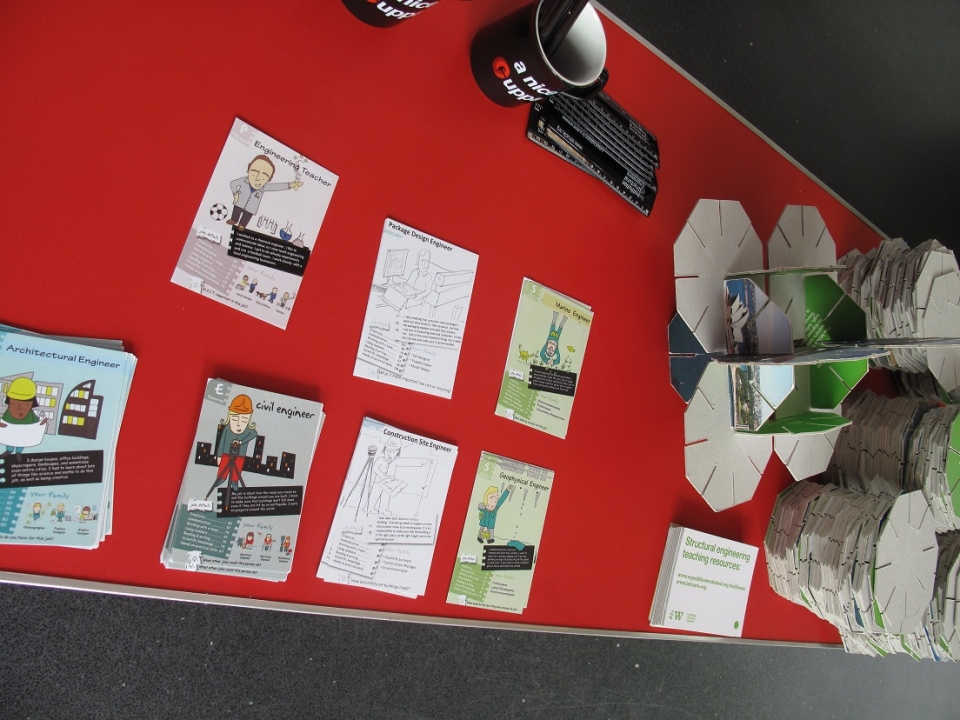
David Oyns from the Arkwright Scholarship Trust ran four workshops a day on understanding flight. He explored this in active workshops using traditional tools used by the earliest pioneers of flight as well as modern principles relying on computer technology. He was assisted by engineers from Rolls-Royce who provided the relevant role model to link the workshop directly to the world of work.
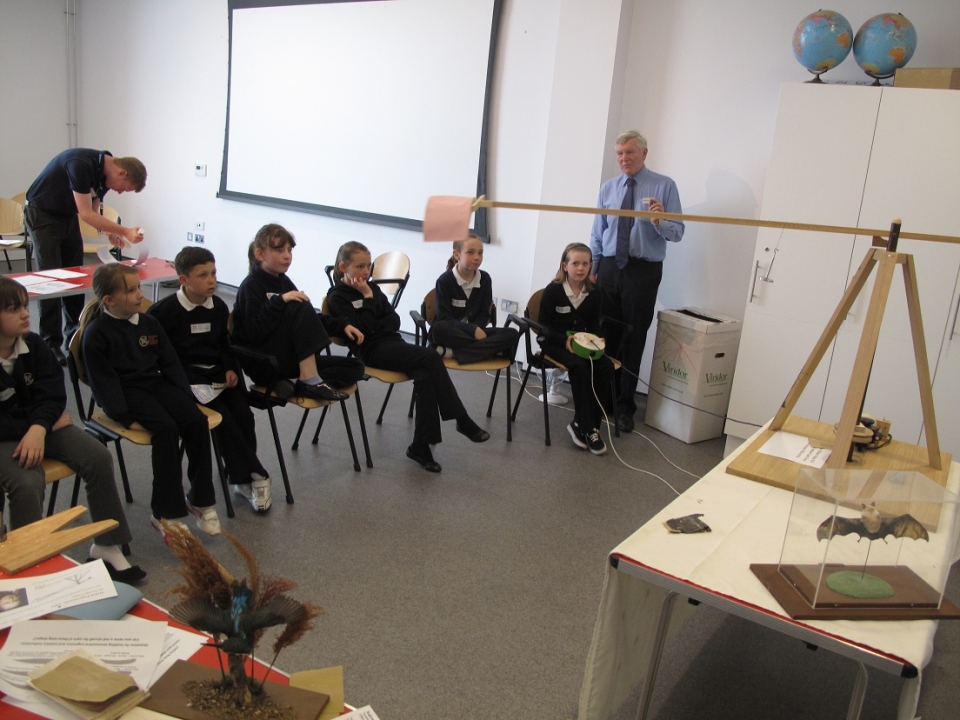
Mark Hazzard, Rolls-Royce Engineer plays his Top Trumps cards carefully. Getting youngsters to reflect on the differences between engineers such as Aero-Nautical, Aviation, Mechanical, Systems, Electronic and Electrical.
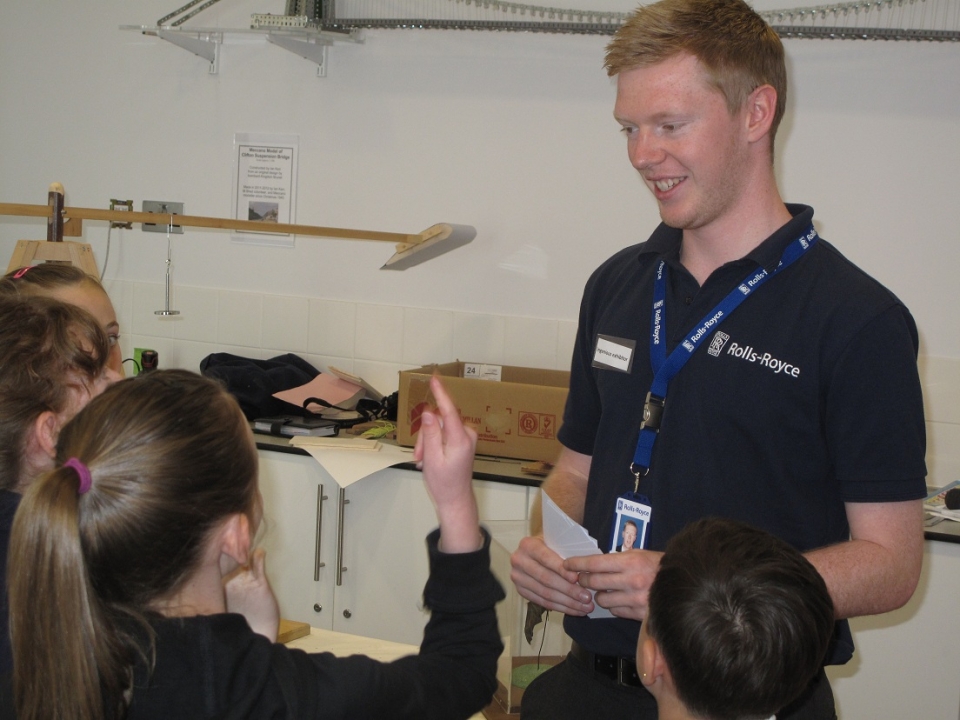
Rebecca Prior, a model making engineer ran a series of automaton workshops showing how cams, cogs and and wheels function.
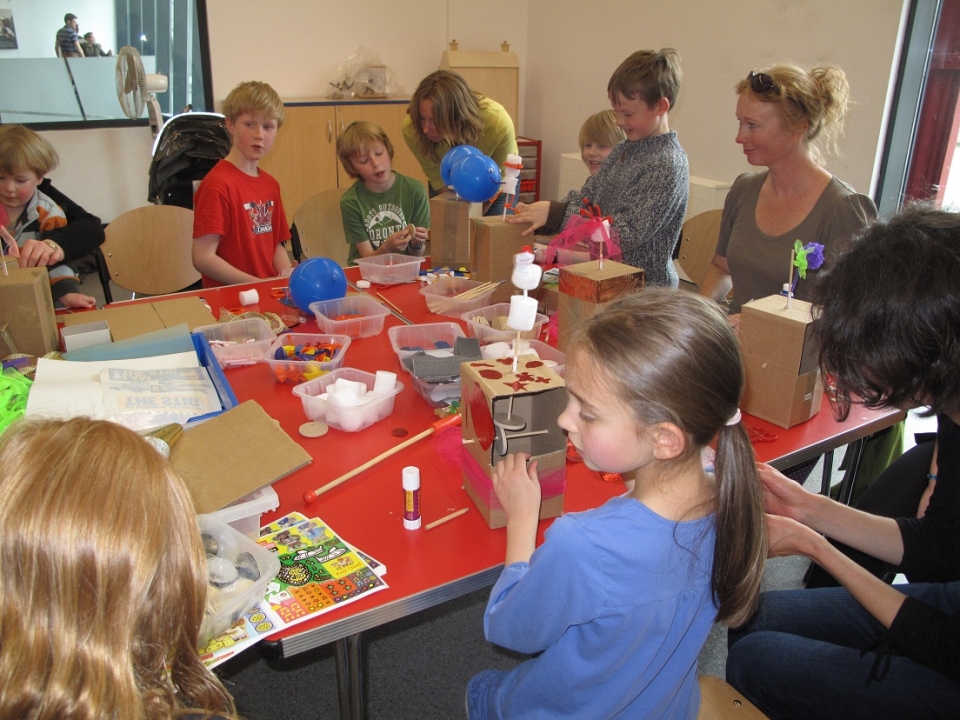
Dyson provided some kit and screwdrivers and trainee primary teachers Chloe Gorringe and Sakara Foot ran short workshops that engaged children in handling, dismantling and assembling design features of the Dyson Vacuum Cleaner.
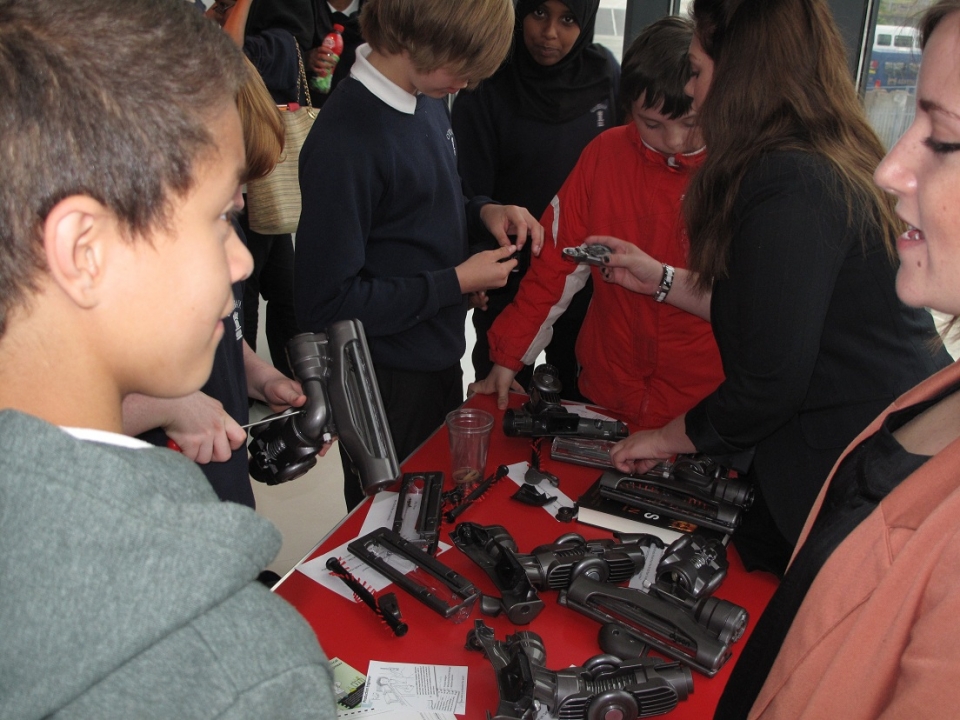
Ben Meller works at the museum and is building a skate board ramp outside M Shed for an Olympic themed show. The demonstration of how gravity works in time and space which was provided by Deep Space Engineers from SEA captured his imagination as well as the visitors and created endless discussion on how planets and satellites orbit a star.
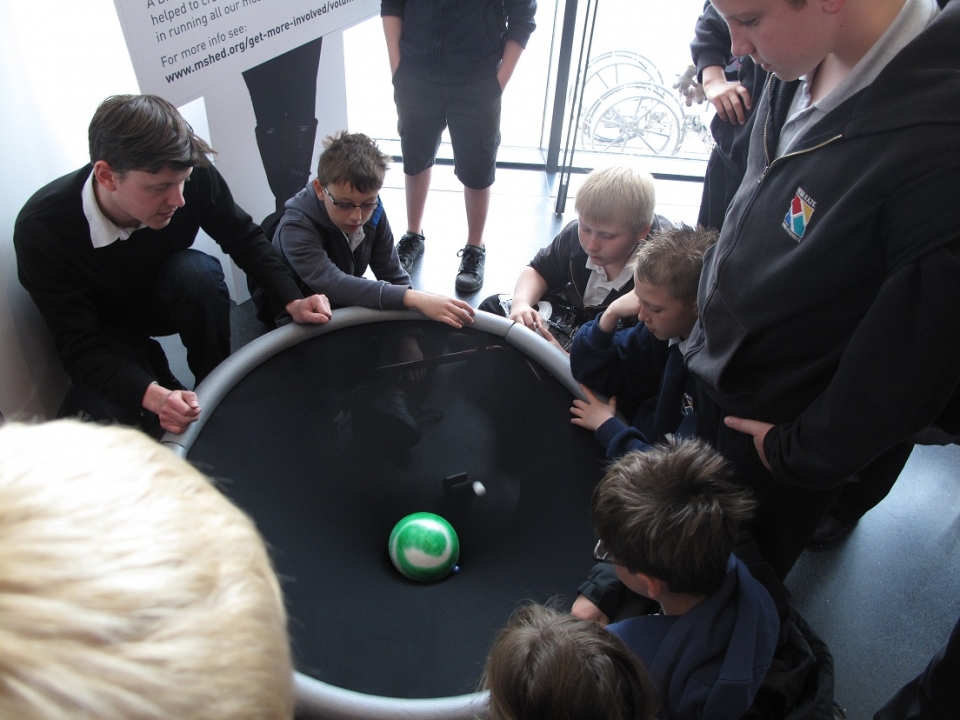
Andrew Bacon, Space Engineer from SEA who devised the demonstration of gravity to show how satellites stay up engages young people in designs for the skate ramps.
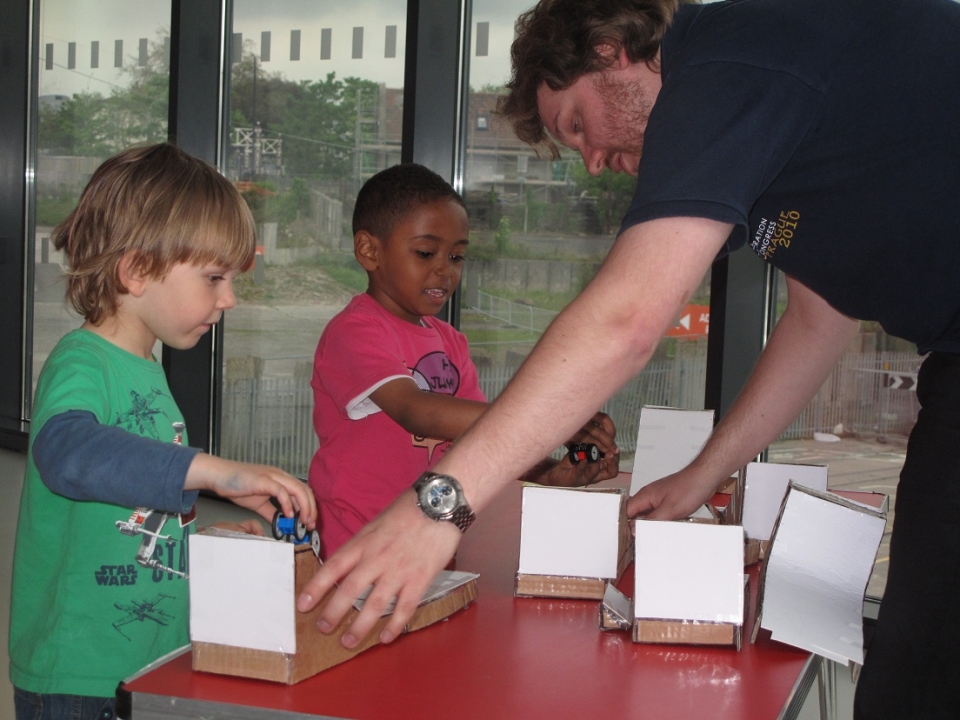
Helen Featherstone from UWE uses the principles of knitting, knotting and weaving to get participants to think about the role of textiles engineers, either as a traditional craft or as an industrial process. Her project brings home the importance of hand skills in the process of making and devising. Continuous Loop Project
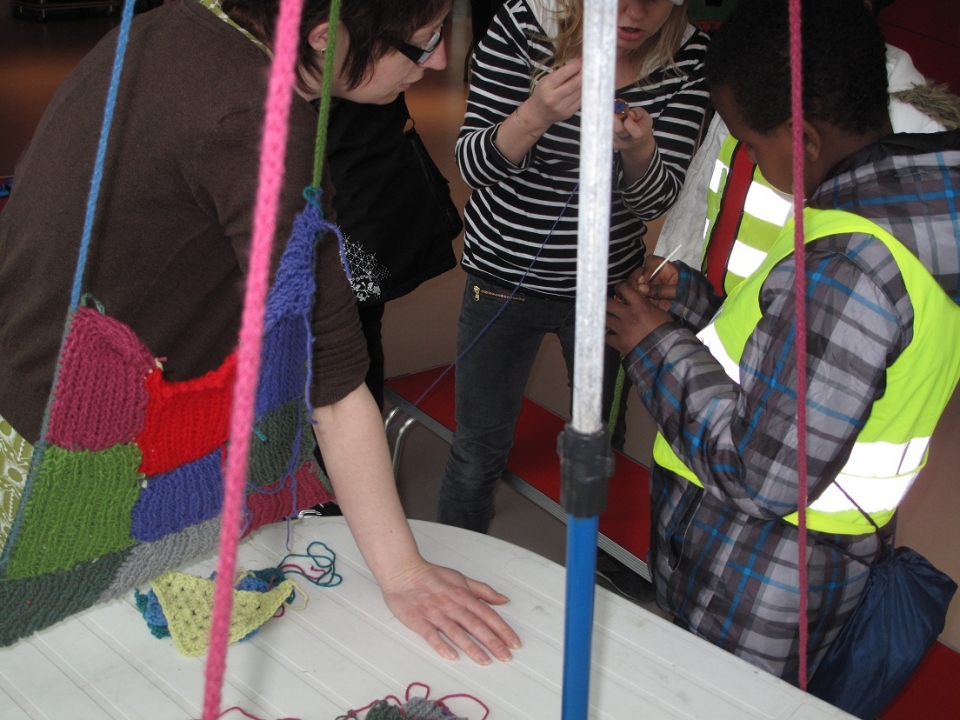
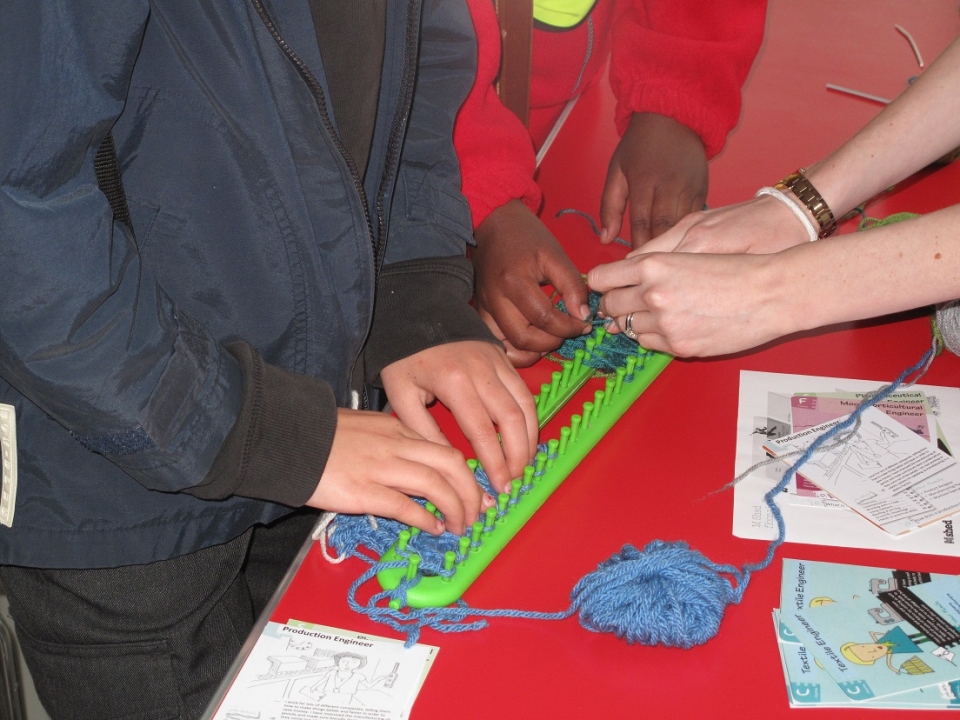
The Institution Of Structural Engineers ran three days of building using a card modular system.
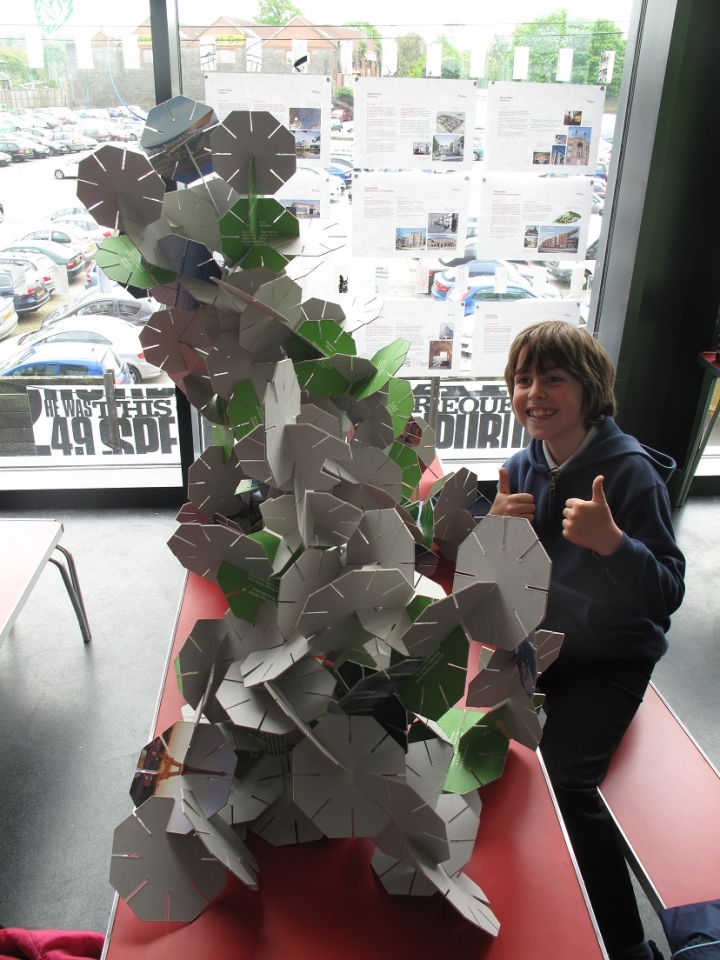
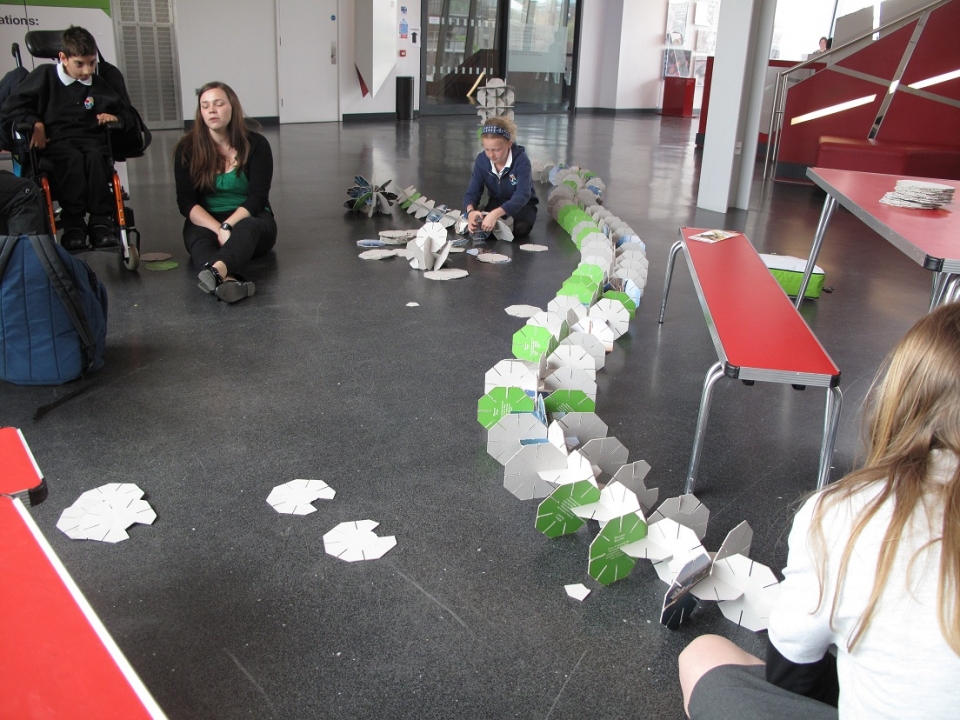
Sam another Deep Space engineer from SEA makes rockets -no Engineering Fair is complete without a rocket!
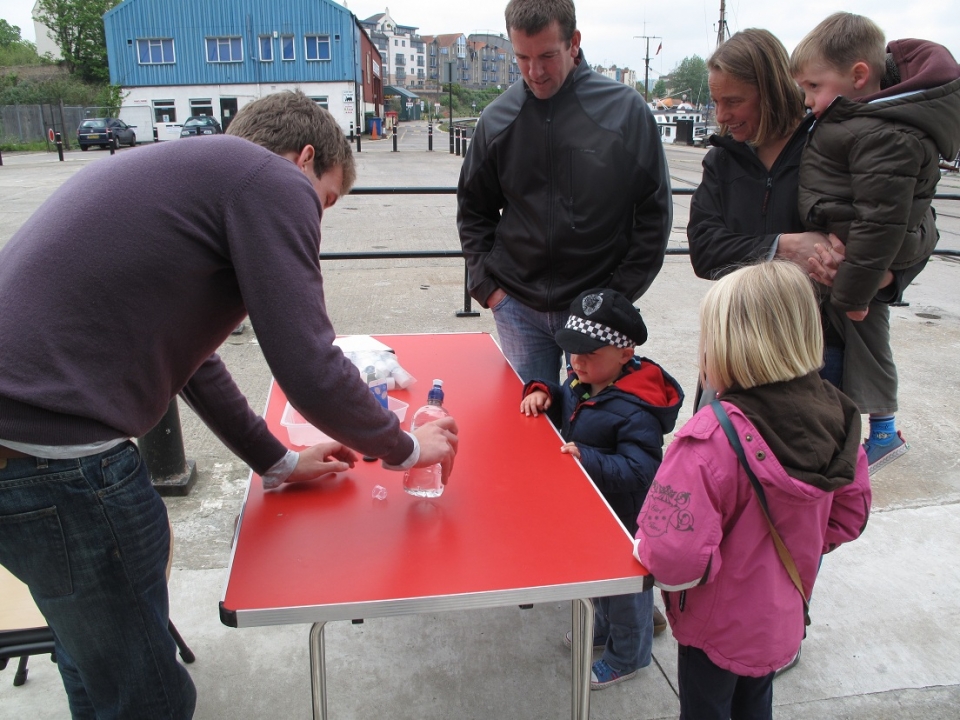
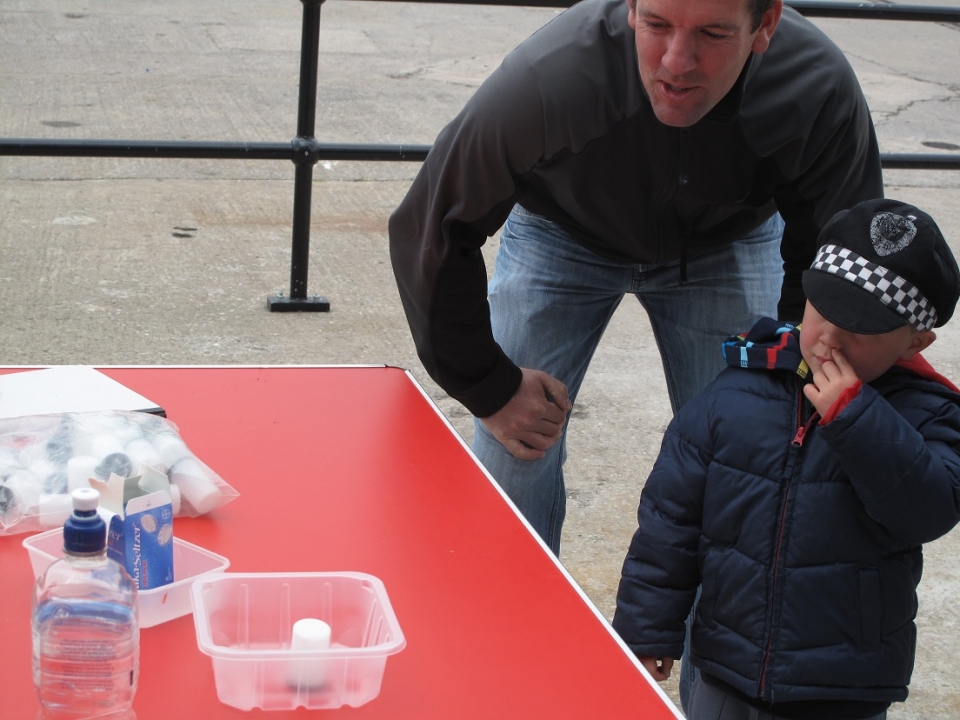
170 school children were booked onto workshops and circa 3600 museum visitors came around the exhibition over the three days
This test event will lead to a comprehensive programme of workshops and a themed display for the museum on the
12th, 13th and 14th July
and
19th October
Schools and public can book workshops and join in the M Shed Engineering Jobs Top Trumps game.
Some of the stands will be open to all Museum visitors.
To find out more contact hugh@myfuturemychoice.co.uk
Evaluations from the children, teachers, parents and volunteers taking part will follow.
Blog Tags
- 'My Future Clubs' (3)
- Aviation (35)
- Bristol Loves Tides (21)
- Build My Future (20)
- Carboard Boat Race (1)
- Cards (8)
- careers (2)
- catch the train to my future (2)
- Citizenship (21)
- Classroom Afloat (9)
- Coaching (2)
- community (16)
- competition (16)
- Constructing and creating (98)
- consultancy (1)
- CPD (14)
- Crossing Coasts - Windrush Project (3)
- Design My School (1)
- Design solutions (12)
- DIY Energy (4)
- Documentary film making (1)
- Early Years (3)
- Engineering (100)
- Engineers (25)
- Engineers Top Trumps Pack (8)
- Entrepenuer (1)
- Exhbitions on Balmoral (2)
- Family (26)
- female engineers (29)
- Festivals (1)
- Financial Education (1)
- Goal Setting (4)
- Higher Education (9)
- Home Learning (2)
- IMechE (4)
- Ingenious (8)
- Institute of Structural Engineers (1)
- Learning Ships (31)
- Learning Ships (3)
- learning Ships (1)
- Lifting Aspirations - Accessing Engineering (20)
- Literacy (1)
- Museum (15)
- outdoors learning (14)
- parents (5)
- PHSE (17)
- Plan My Future (1)
- Power and thrust (12)
- Primary (24)
- Primary (12)
- Primary School (35)
- Reach Out My Experience (2)
- Resources (11)
- Resources - Card Game, Posters, Workbooks etc (7)
- Rocking the Boat (1)
- Science Festival (5)
- Science learning (18)
- Secondary (26)
- Secondary school (52)
- Self Belief (10)
- self evaluation (7)
- Shipping 2050 (2)
- survey (1)
- Sustainability (1)
- transition (13)
- UTC (2)
- Visioning (26)
- Volunteering (35)
- Windrush (2)
- Work Experience (23)
- Workshops (32)
- Wroughting (1)
- 'My Future Clubs' (3)
- Aviation (35)
- Bristol Loves Tides (21)
- Build My Future (20)
- Carboard Boat Race (1)
- Cards (8)
- careers (2)
- catch the train to my future (2)
- Citizenship (21)
- Classroom Afloat (9)
- Coaching (2)
- community (16)
- competition (16)
- Constructing and creating (98)
- consultancy (1)
- CPD (14)
- Crossing Coasts - Windrush Project (3)
- Design My School (1)
- Design solutions (12)
- DIY Energy (4)
- Documentary film making (1)
- Early Years (3)
- Engineering (100)
- Engineers (25)
- Engineers Top Trumps Pack (8)
- Entrepenuer (1)
- Exhbitions on Balmoral (2)
- Family (26)
- female engineers (29)
- Festivals (1)
- Financial Education (1)
- Goal Setting (4)
- Higher Education (9)
- Home Learning (2)
- IMechE (4)
- Ingenious (8)
- Institute of Structural Engineers (1)
- Learning Ships (31)
- Learning Ships (3)
- learning Ships (1)
- Lifting Aspirations - Accessing Engineering (20)
- Literacy (1)
- Museum (15)
- outdoors learning (14)
- parents (5)
- PHSE (17)
- Plan My Future (1)
- Power and thrust (12)
- Primary (24)
- Primary (12)
- Primary School (35)
- Reach Out My Experience (2)
- Resources (11)
- Resources - Card Game, Posters, Workbooks etc (7)
- Rocking the Boat (1)
- Science Festival (5)
- Science learning (18)
- Secondary (26)
- Secondary school (52)
- Self Belief (10)
- self evaluation (7)
- Shipping 2050 (2)
- survey (1)
- Sustainability (1)
- transition (13)
- UTC (2)
- Visioning (26)
- Volunteering (35)
- Windrush (2)
- Work Experience (23)
- Workshops (32)
- Wroughting (1)
Blog Archives
- February 2026 (1)
- September 2025 (2)
- August 2025 (1)
- July 2025 (4)
- April 2025 (3)
- November 2024 (3)
- October 2024 (3)
- September 2024 (3)
- August 2024 (2)
- July 2024 (2)
- May 2024 (2)
- January 2024 (1)
- December 2023 (4)
- October 2023 (2)
- August 2023 (2)
- July 2023 (2)
- June 2023 (1)
- May 2023 (1)
- April 2023 (1)
- March 2023 (2)
- February 2023 (1)
- January 2023 (1)
- November 2022 (1)
- September 2022 (2)
- August 2022 (1)
- July 2022 (4)
- April 2022 (1)
- March 2022 (1)
- December 2021 (1)
- October 2021 (2)
- September 2021 (5)
- July 2021 (2)
- June 2021 (1)
- May 2021 (3)
- April 2021 (1)
- March 2021 (2)
- February 2021 (2)
- December 2020 (2)
- November 2020 (1)
- October 2020 (5)
- August 2020 (1)
- July 2020 (1)
- June 2020 (1)
- May 2020 (2)
- April 2020 (2)
- January 2020 (1)
- December 2019 (2)
- November 2019 (2)
- September 2019 (2)
- August 2019 (2)
- July 2019 (3)
- June 2019 (5)
- May 2019 (4)
- April 2019 (2)
- March 2019 (1)
- December 2018 (1)
- November 2018 (2)
- October 2018 (7)
- September 2018 (2)
- August 2018 (1)
- July 2018 (5)
- June 2018 (2)
- May 2018 (3)
- April 2018 (1)
- March 2018 (5)
- February 2018 (3)
- November 2017 (2)
- October 2017 (1)
- August 2017 (1)
- July 2017 (6)
- May 2017 (2)
- April 2017 (2)
- March 2017 (2)
- February 2017 (1)
- January 2017 (2)
- December 2016 (3)
- November 2016 (6)
- August 2016 (3)
- July 2016 (4)
- June 2016 (1)
- May 2016 (1)
- March 2016 (3)
- February 2016 (1)
- December 2015 (2)
- November 2015 (3)
- October 2015 (1)
- September 2015 (1)
- August 2015 (1)
- July 2015 (5)
- May 2015 (3)
- April 2015 (2)
- March 2015 (3)
- February 2015 (1)
- January 2015 (2)
- December 2014 (2)
- November 2014 (6)
- October 2014 (1)
- September 2014 (3)
- August 2014 (1)
- July 2014 (3)
- June 2014 (1)
- May 2014 (2)
- April 2014 (1)
- March 2014 (3)
- February 2014 (2)
- January 2014 (3)
- December 2013 (6)
- November 2013 (4)
- October 2013 (3)
- September 2013 (1)
- August 2013 (4)
- July 2013 (4)
- June 2013 (2)
- May 2013 (1)
- April 2013 (1)
- March 2013 (2)
- January 2013 (1)
- December 2012 (2)
- October 2012 (3)
- September 2012 (2)
- August 2012 (1)
- July 2012 (6)
- May 2012 (3)
- April 2012 (2)
- March 2012 (1)
- February 2012 (4)
- January 2012 (4)
- November 2011 (2)
- October 2011 (2)
- September 2011 (7)
- August 2011 (2)
- November -0001 (1)